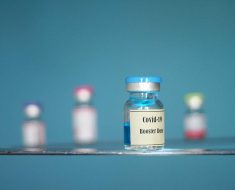This Morning: Dr Sara issues advice to non coffee drinkers
We use your sign-up to provide content in ways you’ve consented to and to improve our understanding of you. This may include adverts from us and 3rd parties based on our understanding. You can unsubscribe at any time. More info
A recent study conducted by Yuan Zhang and colleagues from Tianjin Medical University, China revealed that people who drank tea and coffee were less likely to suffer from a stroke. The study lasted for more than a decade and followed the lives of 365,000 people aged between 50 and 74.
During this time, the participants were asked to self-report how much tea and coffee they consumed on a daily basis.
Over the research period, 10,053 people involved in the trial had at least one stroke.
But, the chance of having a stoke was rapidly deduced among those who drank tea and coffee.

How many cups of tea and coffee can reduce the risk of a stroke?
According to the findings, those who drank two to three cups of coffee and two to three cups of tea on a daily basis had a 32 percent lower risk of stroke.
Those who drank a combination of between four and six cups of coffee and tea had the lowest risk of stroke.
The research also concluded that those who drank a combination of tea and coffee could reduce the risk of post-stroke dementia.
However, the scientists have pointed out that consumption of the breakfast beverages should be “moderate”.
DON’T MISS
Signs of autism in adults – the 8 unique personality traits [INSIGHT]
Diabetes: The sign on your toes that blood sugar levels are high [WARNING]
Vitamin D: The vegetable that can provide 100% of your daily intake [INTERVIEW]
Writing in the journal PLOS Medicine, the authors said: “Our findings suggested that moderate consumption of coffee and tea separately or in combination were associated with lower risk of stroke and dementia.”
The health benefits of coffee and tea are thought to go beyond just their caffeine content.
Dr Scott Kaiser, director of Geriatric Cognitive Health for the Pacific Neuroscience Institute at Providence Saint John’s Health Center in Santa Monica, California told Healthline that antioxidants were also at play.
He said: “While caffeine is certainly a key common denominator, coffee and tea are both derived from plants with many, many potentially beneficial chemical compounds, including powerful antioxidants.
“An extensive and growing body of research demonstrates the brain health benefits of certain foods — especially those rich in antioxidants and other ‘neuroprotective’ compounds.”

Despite their findings, though, the experts added that the participants were a “healthy sample” and may not reflect the entire population accurately.
The findings suggest that tea and coffee can be beneficial, but they can not be used as a cure-all.
Professor Tara Spires-Jones, head of the UK Dementia Research Institute programme and deputy director of the Centre for Discovery Brain Sciences at the University of Edinburgh, who was not involved in the study, said that more needs to be done to understand the links between tea and coffee consumption and strokes.

Some experts have also pointed out that drinking too much tea and coffee can actually have the opposite effect.
Profession Kevin McConway, an emeritus professor of applied statistics at the Open University, was not involved in the study.
However, when commenting on the findings, he suggested that in some cases drinking too much of the beverages may even increase risk.
He said: “Once the coffee consumption got up to seven or eight cups a day, the stroke risk was greater than for people who drank no coffee, and quite a lot higher than for those who drank two or three cups a day.”
According to the NHS: “The best way to help prevent a stroke is to eat a healthy diet, exercise regularly, and avoid smoking and drinking too much alcohol.”
Source: Read Full Article





